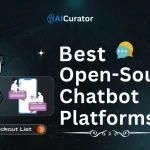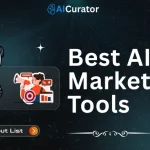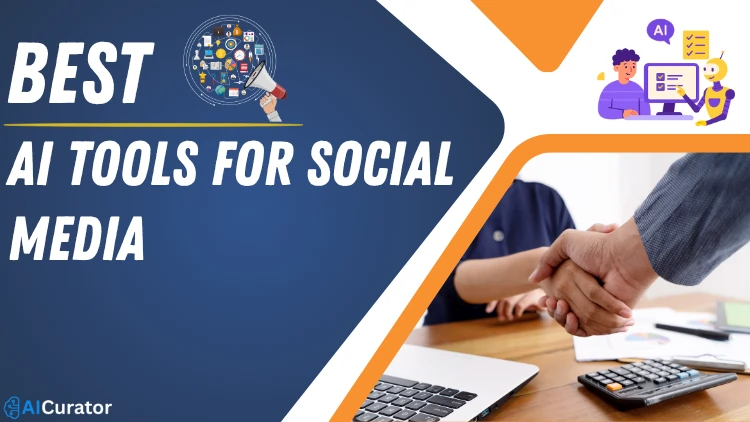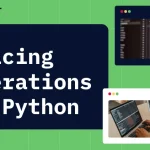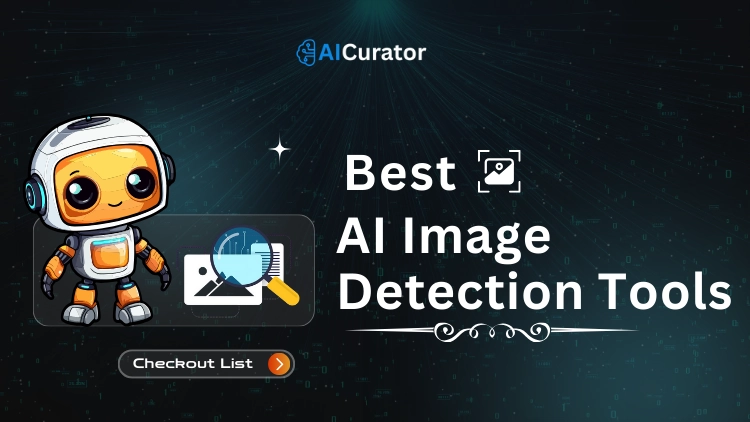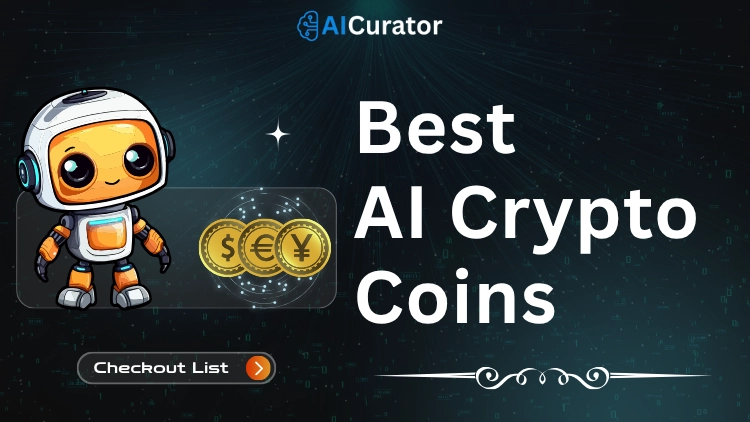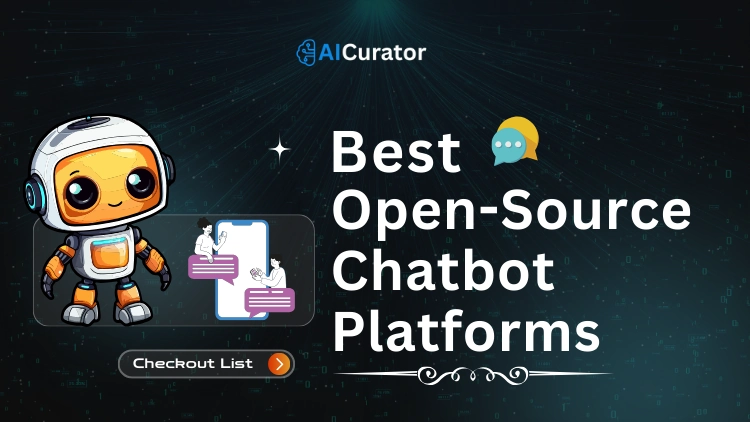Let's be honest: managing social media is a chaotic mess. You're stuck creating endless content and guessing when to post. Most AI tools claim to fix this, but they often deliver robotic captions and useless analytics that don't help you grow. It’s easy to get burned by overhyped software.
That's why our team has personally tested dozens of AI social media platforms. We looked for the ones that actually save time, generate engaging posts, and provide clear insights. We’re here to show you the tools that deliver real results.
What are AI Tools for Social Media and Why do you Need them?
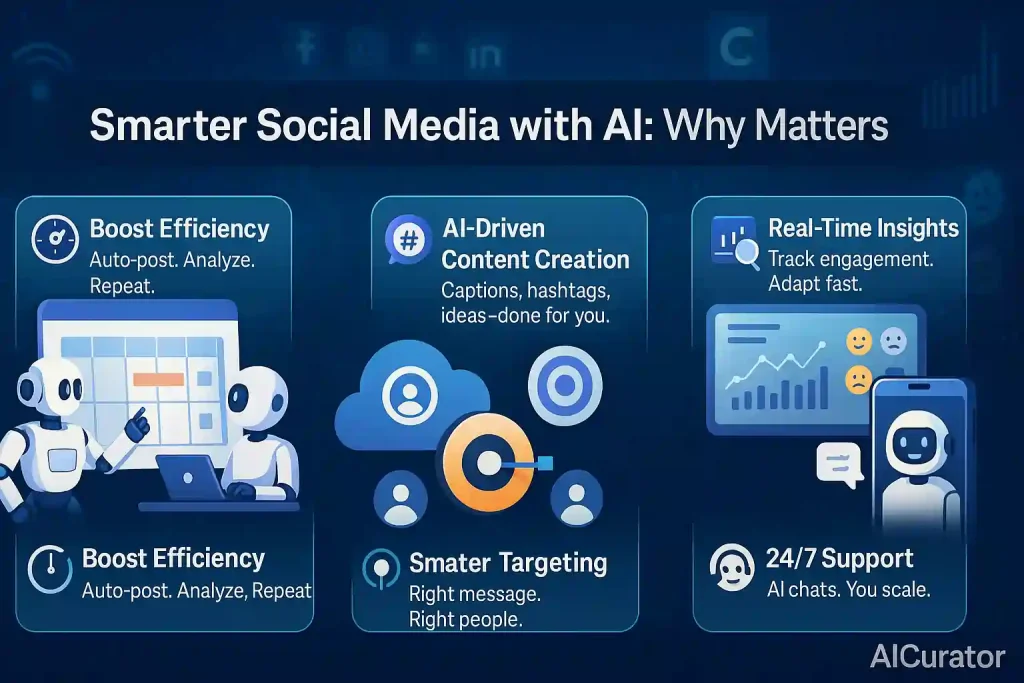
Artificial intelligence tools for social media are software applications that utilize machine learning and other AI technologies to streamline and optimize social media strategies. These tools analyze vast amounts of data to automate tasks, generate content, and provide deep insights into audience behavior.
For businesses and marketing professionals, these tools address key challenges by offering significant advantages:
- Increased Efficiency They automate repetitive tasks like content scheduling, posting, and performance analysis, freeing up marketing teams to focus on strategy.
- Enhanced Content Creation AI can generate ideas for social media posts, write engaging captions, suggest relevant hashtags, and repurpose long-form content for different platforms. This helps overcome creative blocks and maintain a consistent flow of content.
- Improved Audience Targeting By analyzing user data, demographics, and interests, AI helps identify and target the most relevant audience for campaigns, which can improve engagement and conversion rates.
- Data-Driven Insights AI provides real-time analytics and sentiment analysis, which tracks whether audience perception of a brand is positive, negative, or neutral. This allows for rapid adjustments to marketing strategies based on performance data.
- Better Customer Service AI-powered chatbots can offer 24/7 customer support on social platforms, answering frequently asked questions and guiding users.
Powerful AI Tools to Elevate Your Social Media Game
| Best AI Tools for Social Media 🛠️ | Best Feature ⭐ | Ideal For 👥 |
|---|---|---|
| FeedHive | AI Content Scheduling | Content Creators |
| Canva | Visual Design Magic | Marketing Teams |
| Flick | Caption Writing Speed | Instagram Managers |
| Publer | Multi-Platform Management | Social Agencies |
| Predis.ai | Complete Post Generation | Small Businesses |
| ContentStudio | Content Discovery Engine | Marketing Professionals |
| Ocoya | E-commerce Integration | Online Retailers |
1. FeedHive
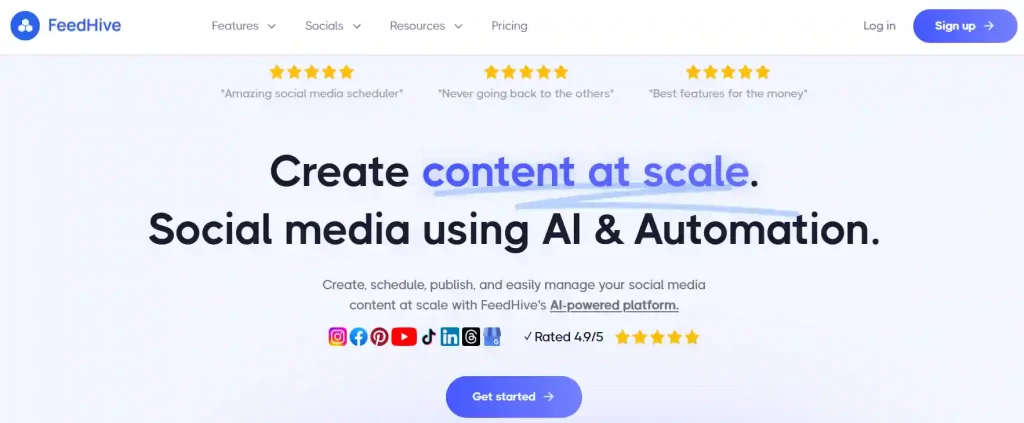
FeedHive is an AI-powered social media management platform designed to help users create, schedule, publish, and manage social media content at scale. It uses AI to optimize posting times, generate relevant hashtags, and even predict post success before publishing.
The platform offers features like content inspiration templates, post recycling suggestions, and a unified social inbox for managing interactions.
FeedHive provides comprehensive analytics, visualizing follower activity and engagement to offer actionable insights for growth. It also supports team collaboration with approval workflows and offers a white-label solution for agencies.
Pros
Cons
Use Cases:
Best for: Social media managers and marketing teams seeking an all-in-one platform for AI-driven content optimization, scheduling, and performance analytics to enhance their digital presence.
2. Canva

Canva is a versatile design platform that integrates AI tools to simplify social media content creation, scheduling, and publishing. It enables users to design visually stunning graphics, posts, and videos for various platforms. Features like Magic Design allow users to generate buzzworthy content from text descriptions, while Content Planner helps schedule posts directly to social media accounts.
Canva provides access to a vast library of templates, images, icons, and audio, along with AI-powered features like background remover and Magic Eraser for effortless editing. It also supports real-time collaboration and brand kit management to ensure consistency across all designs.
Pros
Cons
Use Cases:
Best for: Content creators, small businesses, and marketing teams needing an intuitive, AI-enhanced design tool for creating and managing a wide range of social media visual content.
3. Flick
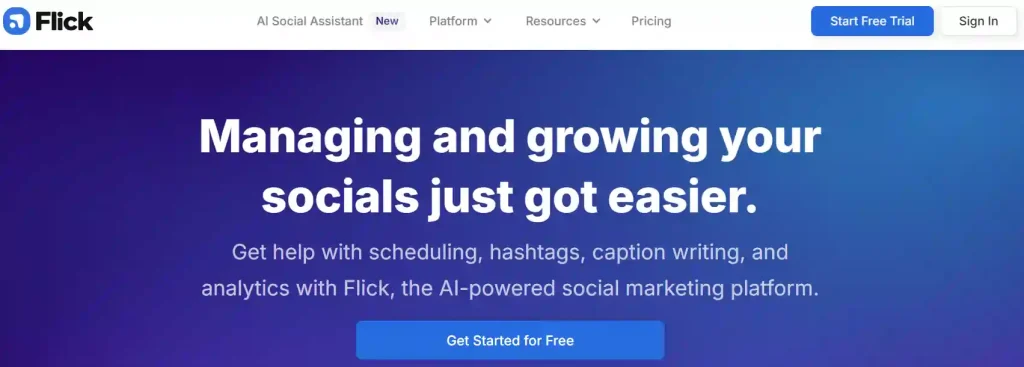
Flick positions itself as an AI social media assistant, primarily focusing on accelerating content workflows. It offers AI-powered features for brainstorming content ideas, writing engaging captions, and auto-generating relevant hashtags. Flick helps users quickly turn content ideas into multiple posts and optimizes posting times based on audience activity to increase reach and engagement.
The platform emphasizes efficiency, enabling users to write captions significantly faster and repurpose content instantly. It also provides analytics to offer insights into post-performance, aiding in informed content strategy decisions.
Pros
Cons
Use Cases:
Best for: Social media managers and content creators looking for an AI-powered copilot to boost their content creation speed, generate ideas, and improve post engagement.
4. Publer
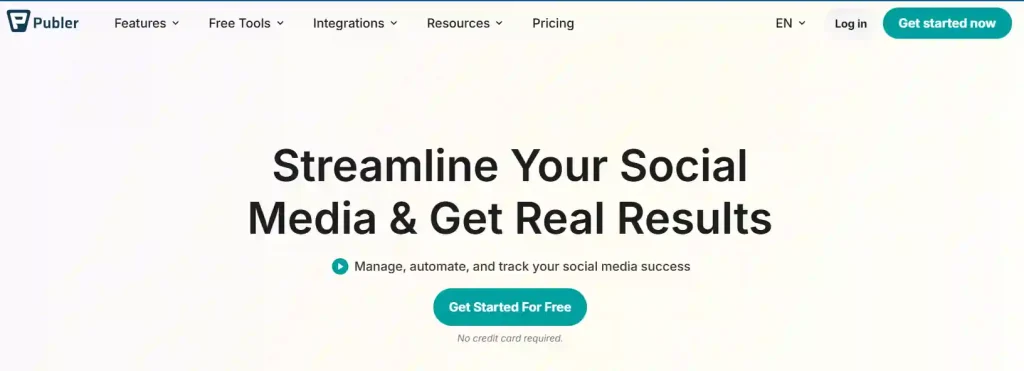
Publer is a comprehensive social media management tool that streamlines scheduling, analytics, and team collaboration across multiple platforms. Its AI Assist feature helps generate content, create stunning images, and respond to comments efficiently. Publer allows users to schedule posts across a wide array of social networks, ensuring content is tailored for each platform.
The tool offers advanced scheduling options, detailed analytics for post-performance insights, and robust team collaboration features with approval workflows. Publer also provides content curation tools and automated post recycling to maintain a consistent online presence.
Pros
Cons
Use Cases:
Best for: Businesses and agencies managing multiple social media accounts that require comprehensive scheduling, AI-assisted content creation, and robust team collaboration features.
5. Predis.ai
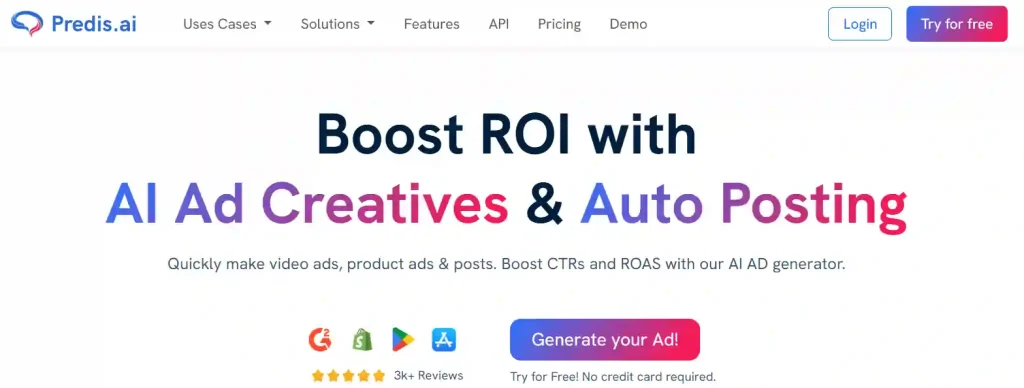
Predis.ai is an AI-powered content creation tool specifically designed for social media marketing. It simplifies the process by generating high-quality social media posts, visuals, captions, and hashtags from a simple text input. The tool supports various content formats, including carousels and videos, and adapts to the brand's voice.
Predis.ai offers automated creative design, allowing users to generate visuals without needing external design tools. It also includes competitor analysis features and supports content creation in multiple languages.
Pros
Cons
Use Cases:
Best for: Business owners, freelancers, and social media managers who need an efficient AI solution for generating comprehensive social media content, including visuals, captions, and hashtags.
6. ContentStudio
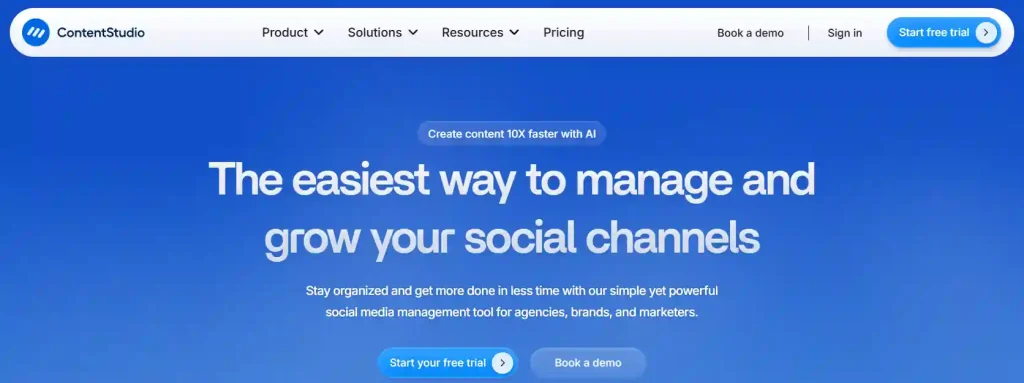
ContentStudio is a unified social media management tool that focuses on content creation, scheduling, publishing, and analysis across various social networks. Its AI capabilities assist in drafting posts, generating eye-catching graphics, and curating trending content from across the web.
The platform offers a user-friendly calendar view for scheduling and features like Auto Page Rank to help improve content visibility .
ContentStudio provides detailed analytics to measure post performance and facilitate data-driven decisions. It also supports team collaboration, allowing for task assignments and progress tracking within the platform.
Pros
Cons
Use Cases:
Best for: Businesses and marketers seeking a robust, all-in-one platform for comprehensive social media content management, from creation and scheduling to analysis and team collaboration.
7. Ocoya
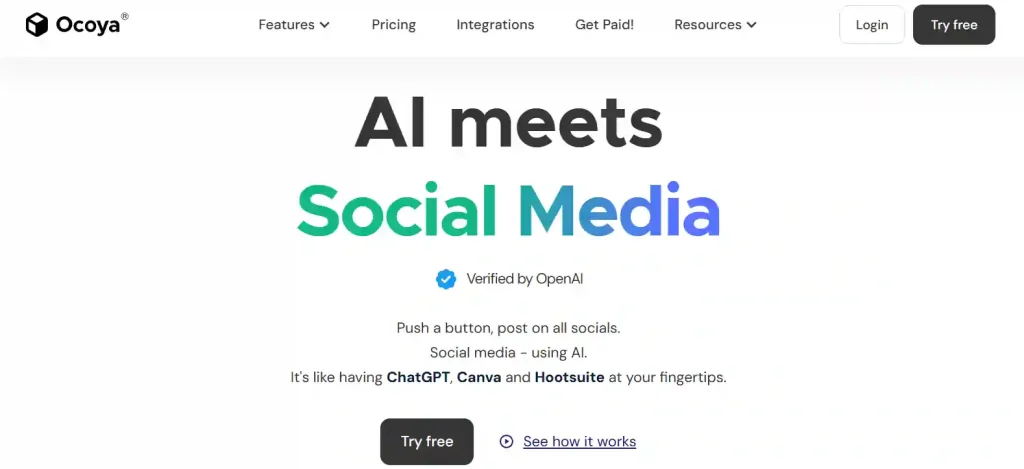
Ocoya is an AI-powered social media management tool designed to streamline content creation, scheduling, and analytics across various platforms.
Its AI copywriting features create captivating content for social media, blogs, and even analyze images to generate relevant hashtags and personalized captions. Ocoya also offers graphic design tools, allowing users to create eye-catching images and short-form videos.
The platform supports scheduling across numerous social media channels and provides real-time analytics on engagement, reach, and conversions. Ocoya facilitates team collaboration through workspaces and integrates with popular tools like Canva and Shopify.
Pros
Cons
Use Cases:
Best for: Marketers and businesses looking for an AI-powered hub that simplifies content creation, scheduling, and analytics, with robust integrations for e-commerce and visual design needs.
The Future of AI Tools for Social Media Marketing
The role of AI in social media marketing is set to expand, moving beyond automation to become a core component of strategic planning and execution.
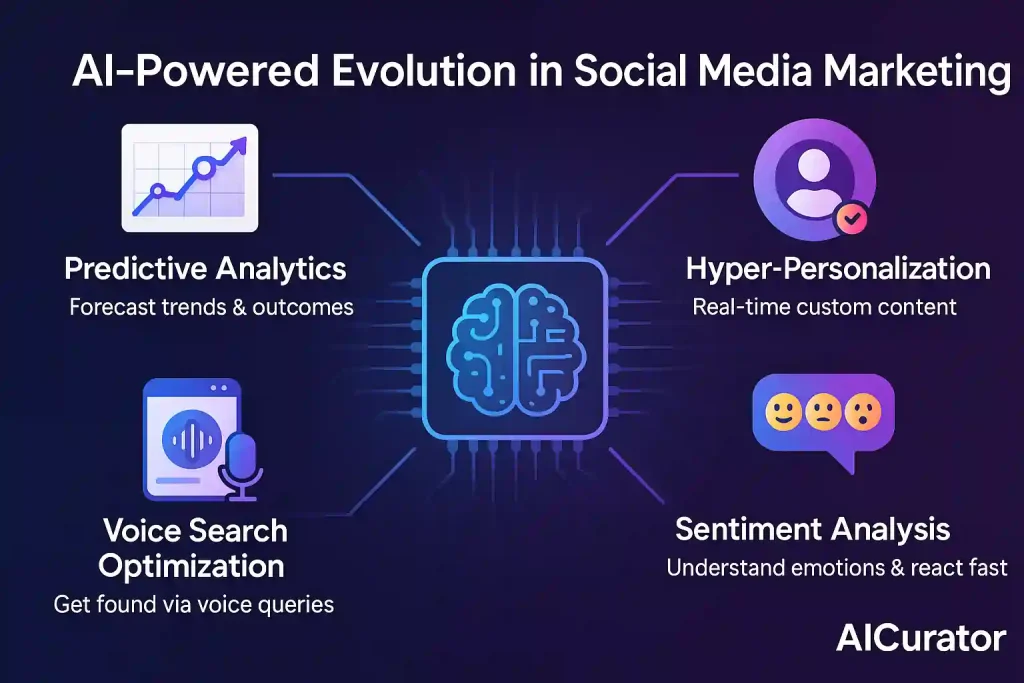
Key future trends include:
- Predictive Analytics AI will increasingly be used to forecast social media trends, predict the performance of content before it's published, and anticipate shifts in audience behavior.
- Hyper-Personalization Future tools will deliver highly individualized content and ad experiences to users in real-time by analyzing data from multiple touchpoints. This deeper level of personalization can boost user engagement by up to 60%.
- Generative Video and Visuals AI's ability to create high-quality, unique visual content will become more advanced, enabling brands to produce professional-grade videos and images without needing large production budgets.
- Advanced Sentiment Analysis AI will offer a more nuanced understanding of audience reactions and emotions, allowing brands to quickly adapt their messaging and strategy based on public sentiment.
- Voice Search Optimization As more users interact with technology via voice commands, AI will play a crucial role in optimizing social media content to be discoverable through conversational search queries.

More from AICurator:
Best AI Tools for Social Media
AI tools for social media are now essential for connecting with your audience. They automate content creation, scheduling, and provide deep analytics, saving you time while boosting engagement.
The platforms on our list offer a clear path to smarter management and better results. For any business serious about growth, adopting the right AI tool isn't just an option—it’s the key to staying ahead in a competitive digital world.




